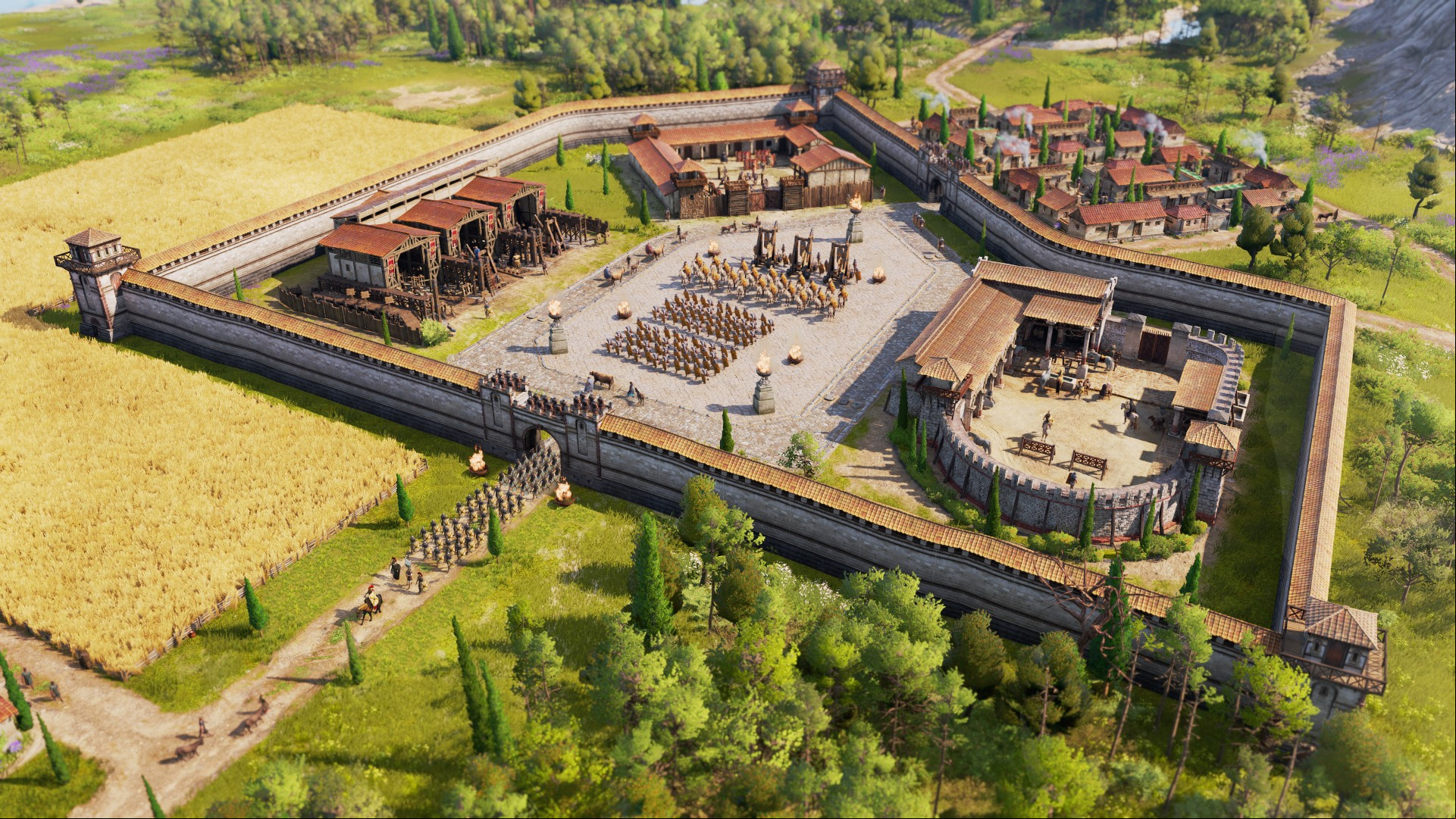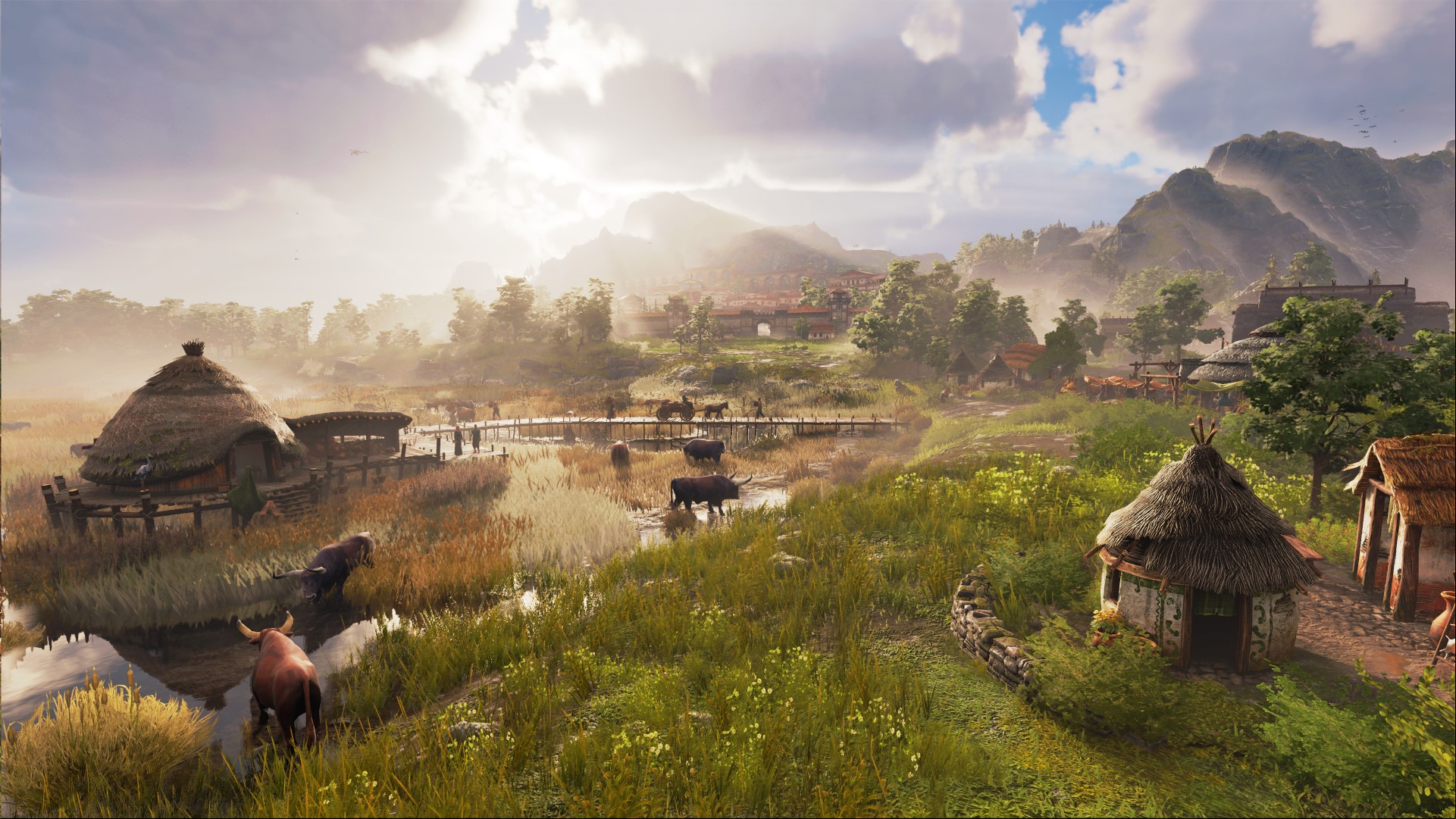Especially after Anno 1800 and 2205, you can imagine that the foundations of Ubisoft's city-building series might struggle to translate to Ancient Rome. Anno, primarily, is rooted in exploration, economics, and peaceful expansion – it's about connecting disparate townships and people via trade routes and diplomacy. On the contrary, when you think of the Roman Empire, you think of centurions and war. That puts Anno 117 in a potentially difficult spot. Part Cities Skylines, part Europa Universalis, and part RTS, it also has to marry its comparatively pastoral gameplay with a more feudal, war-driven historical context. From what I've played so far, however, Anno 117 successfully pulls together these disparate influences.
I played for about three hours, and primarily, it's worth noting that city-building games that I've seen in the last couple of years. I find Cities Skylines 2 a little grey and unsaturated. Kaiserpunk looks good at the micro level, but the world map remains a bit simplistic and dour (although it has just been updated by Overseer). Anno feels closer, visually, to Manor Lords.
Your settlements, at least in the opening hours, are confined and basic, but still humming with activity. It's vibrant. It's rich. It looks very alive. I maintain that the high watermark for how a city builder should look is still SimCity 3000. As well as a soothing kind of symmetry and detail, Anno 117's incipient Roman settlements – even though they don't have the skyscrapers and mass transit of 1800 and 2205 – are teeming with visual energy.

You're the governor of an unexplored, undeveloped island somewhere in the Empire's outer orbit. As is Anno tradition, your overarching goal is threefold. You need to build up a city, cultivate agriculture and industry, and connect with the leaders of the satellite townships that are based on neighboring islands.
It's a lot to manage. Each commodity, like wood or clothing, requires a production chain that includes a farm, a processing plant, and a warehouse. Your relationships with other governors are influenced by completing quests on their behalf (one local politician might ask for you to use your ships to deliver a shipment of goods to another, for example) and by buying and selling your respective produce.

Effectively, it means that Anno 117, like its predecessors, is both a city builder and an RTS game, albeit a more pacifist version. Given the complexity of both genres, and how it's common for even the best-designed examples to become mired in drop-downs, data, and menus, even if you're totally new to Anno, it's irable how much 117 makes immediate, straightforward sense.
This is no trivial thing. You want a game like Anno to give you the room to design and strategize on your own , but you also don't want to get lost – you want don't to fall into a death loop where, for example, you start running out of money (Denari in this case), but everything you do to solve the problem seems to make it worse, and you don't know how to get unstuck. From what I've played so far, Anno 117 has a variety of subtle systems, enough to tip you off to how all the game's mechanics and simulations work, but not so much that you feel led by the nose.

One example. Your citizens are divisible by class; two of the earliest are the commoners, who live in the most rudimental housing and work in farming and forestry, and the Plebians, whose homes are slightly more expensive to create and maintain, but who craft your raw materials into sellable wares. Naturally, for a successful economy, you need to accommodate a mixture of the two. It's the same as Cities Skylines, where you try to attract both uneducated and educated workers; people who work in offices, alongside those in industry and retail.
But there's a useful system in Anno 117 whereby, until you deliberately upgrade a commoner house into a house suitable for a Plebian, you won't get a Plebian worker. Similarly, as soon as you complete the conversion, there will be a Plebian in your city, ready to fill any appropriate vacancy.

This maybe sounds a little technical or too under-the-hood, but it allows you to stagger the development of your city and your economy, without having to navigate inscrutable components of the underlying simulations. It's that perfect mix of a city builder, where you're trying to manage jobs and production, and a strategy game, where you have more direct control over what's being made and for what reason.
And it's all achieved via a simple, readable interface. We're still waiting on a specific release date for 117, but so far, it feels like more than just Anno with a Roman reskin. At face value, Ubisoft's strategy game might be hard to translate to the Ancient era. But from what I've played so far, the Roman setting makes the foundational elements of Anno even stronger.

As we wait for Anno 117, you might want to try some of the best 4X games on PC.
You can follow us on Google News for daily PC games news, reviews, and guides. We've also got a vibrant community Discord server, where you can chat about this story with of the team and fellow readers.
